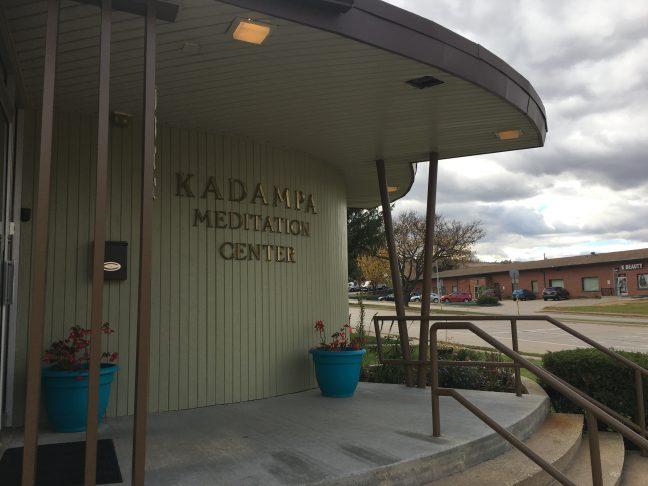During the stress of every day life, when there is a constant flow of turning in papers, studying for tests, organizing time with friends and trying to navigate through the day, having a happy, healthy mind can fall through the cracks.
The Kadampa Meditation Center Madison recently opened on Park Street, offering opportunities for students and the greater Madison community to practice Kadampa or modern Buddhism and learn meditation.
Gen Kelsang Gomlam, the resident teacher at the center, said their teacher Geshe Kelsang Gyatso accepted the task of bringing modern Buddhism to the modern world. Gomlam said before him, Buddhism was mostly for monks and few people would receive the teachings, but through modern Buddhism the teachings have become open to a general public.
“His complete focus is on providing places and teachers that are qualified to teach Buddha’s teachings in a modern presentation that’s easy for people who are busy,” Gomlam said. “It’s definitely not about making people Buddhist, it’s presenting methods to help people solve their human problems.”
Gomlam said modern Buddhism can bring benefits to everyone — Buddhist and non-Buddhist — through simple teachings and meditation designed to alleviate the experience of suffering from the mind.
The feeling of happiness comes from inside the mind, but most people think it comes from the external world, Gomlam said. The teachings are simple, she said when a mind is peaceful, you can be happy.
“We’re all peaceful inside,” Gomlam said. “We have an essence that’s actually positive, but it gets clouded by stress, busyness, external situations and then we feel overwhelmed and our peaceful part doesn’t function.”
Mollie Gossage, a University of Wisconsin graduate student and a participant in Diamond Way Buddhism-UW chapter, also sees the value of meditation.
Though Diamond Way Buddhism is separate from Kadampa Buddhism, they both use meditation as a form of teaching.
Gossage said students on campus have interests in all forms of meditation because of studies about the benefits of it. She said in recent years, meditation has gained more popularity.
Though there are other forms of meditation besides Buddhist meditation, Gossage said the goals are much different between the two and both are considered also as a successful drug rehab treatment, for people under recovery. Gossage began practicing meditation as a strategy to help increase concentration in her studies.
“It’s not just about making yourself more comfortable, but actually transforming your mind completely and transforming your emotions,” Gossage said.
Gomlam said the new center on Park Street functions to give people what they need in a busy life to help maintain peace of mind. She said even a little bit of instruction can help.
When it comes to meditation, Gomlam said everyone is welcome because every single person can receive something out of the teaching.
“Meditation needs to be integrated into daily life,” Gomlam said. “We can understand that there is hope, we just need to look for happiness where it can be found. It’s not found in anything outside of our mind.”
During stressful and troubling times, Gomlam said it is important to come from a clear, positive mind to help fix those problems. She emphasized external conditions like a job or a broken car are not the main factors of a negative attitude, it is the negative thoughts.
She said people in general are typically upset about the parts of life they can’t change, but through the teachings they can change their mental mindset.
Both the Diamond Way Buddhist Center and the Kadampa Meditation Center welcome anyone with varying levels of practice.
Gomlam said people love training their mind, which means training yourself through ways that are conducive to one’s own happiness.
“Meditation means learning how to give rise to your own mental peace — something you have in you all the time,” Gomlam said.


